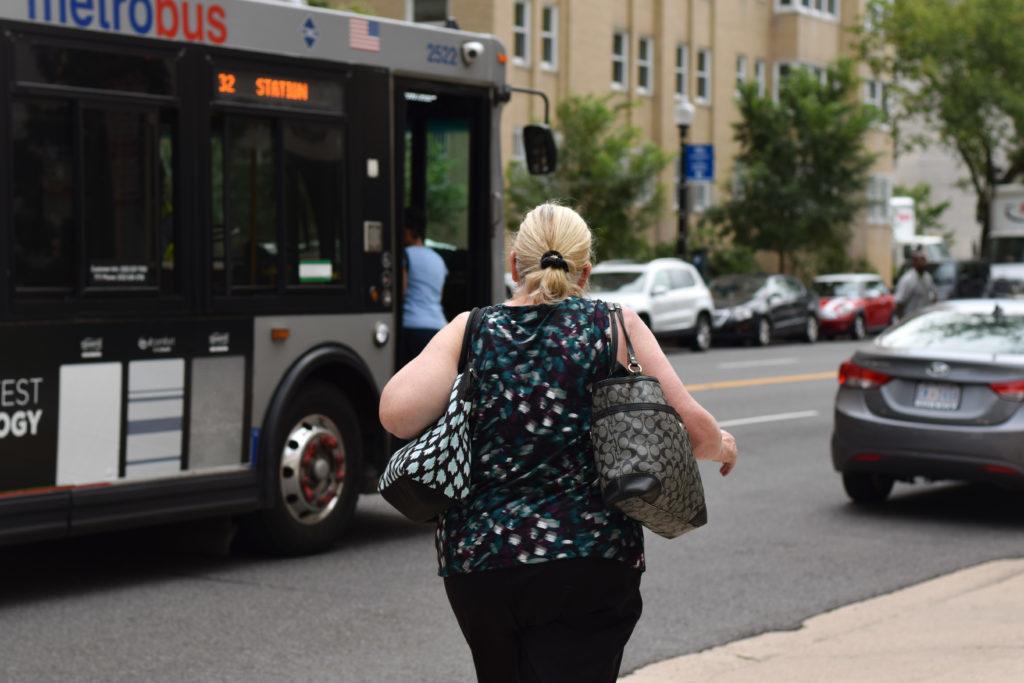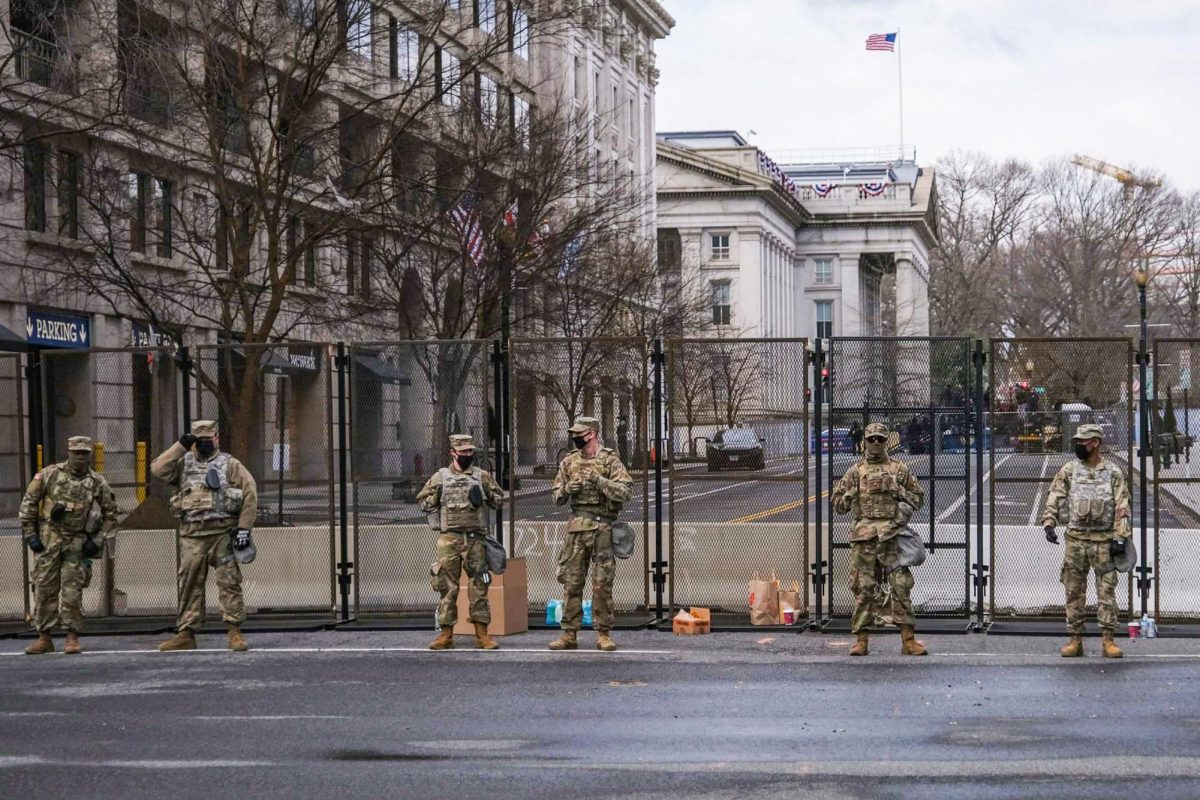Students in Foggy Bottom will soon receive direct bus service to New York City just a block away from campus.
Senior James Harnett, the chair of the Foggy Bottom and West End Advisory Neighborhood Commission, said officials from FlixBus – an intercity bus service provider – will install a bus stop in front of the International Monetary Fund building on the 1900 block of G Street. Harnett said the bus will offer local residents, employees and students better access to cities along the coast in the Northeast.
“If demand exists to get folks to New York, to Boston, to any other city in a particular neighborhood, then it makes sense to provide more direct access for that neighborhood to get around, and this is a piece of that,” he said. “And I assume that this will be the first of maybe a few intercity bus stops that open in Foggy Bottom.”
He said its installment – slated for the fall – was delayed by the pandemic, but FlixBus officials have consulted with ANC commissioners and IMF officials over the past year to plan for the bus stop.
Harnett said the bus stop could especially help students during the holiday season in future years, a time he said the majority of students travels off campus, since they’ll no longer need to trek to Union Station to board a bus or train.
“Being able to get from city to city is an important part of any transit ecosystem,” he said. “You don’t want to be crowding roads with passenger vehicles going up and down the East Coast.”
Harnett said commissioners wanted to ensure the stop would be “pedestrian friendly.” He said officials searched through streets where locals could easily board a bus without crossing any major roadways and find the stop near an area with office space, residential buildings and a Metro station.
He said his “biggest concern” about installing the bus stop is that FlixBus’s new stop would violate D.C.’s idling law, which prohibits any bus from sitting in place for more than two minutes to limit excessive carbon emissions. Harnett said stakeholders, including ANC commissioners, agreed to locate the stop in front of the IMF to avoid blocking nearby buildings while keeping the stop close to workspaces like the IMF, the World Bank, the Eisenhower Executive Office Building and the White House.
Harnett said while officials wait to install the stop, FlixBus has continued to work with ANC commissioners to agree on the stop’s logistics, like ensuring dimensions don’t run too wide and requesting officials install additional trash cans near the stop to prevent heightened littering.
“It’s those little challenges that were really the priority from both of our organizations’ perspectives to make sure that this worked well and met the needs of the community, and that’s something that FlixBus was amenable to and why we’re off to the races,” he said.
FlixBus officials did not return multiple requests for comment.
Transportation experts said they applaud the decision to install the bus stop near the Foggy Bottom campus, adding that the service will boost revenue for a bus industry struggling through the pandemic.
James Moore, an engineering professor at the University of Southern California, said the new bus stop could help bus companies recover from the financial effects of COVID-19, during which bus service providers have been left with little funding from the federal government. He said the stop’s proximity to GW could have attracted FlixBus officials since many students are likely to utilize the low-cost method of transportation.
“The students are important because the students need to travel,” Moore said. “They’ve got families, and they’re often a little short on resources. So I can imagine that these operators look at the GW market and think, ‘Alright, this is a place where demand is likely to exist.’”
Anton Nelessen, a professor of urban planning and design at Rutgers University, said intercity bus stops are able to reach almost every major university he knows. He said all bus stops need to be within a “reasonable walking distance,” or 10 to 15 minutes away from most pedestrians, so a college neighborhood that also includes several organization and government buildings could have appealed to the company.
“The idea of a college campus’ original bus stop is a really very great thing, given what we are going to be needing in the future for mass transit facilities,” he said.
Chow Paueksakon contributed reporting.








